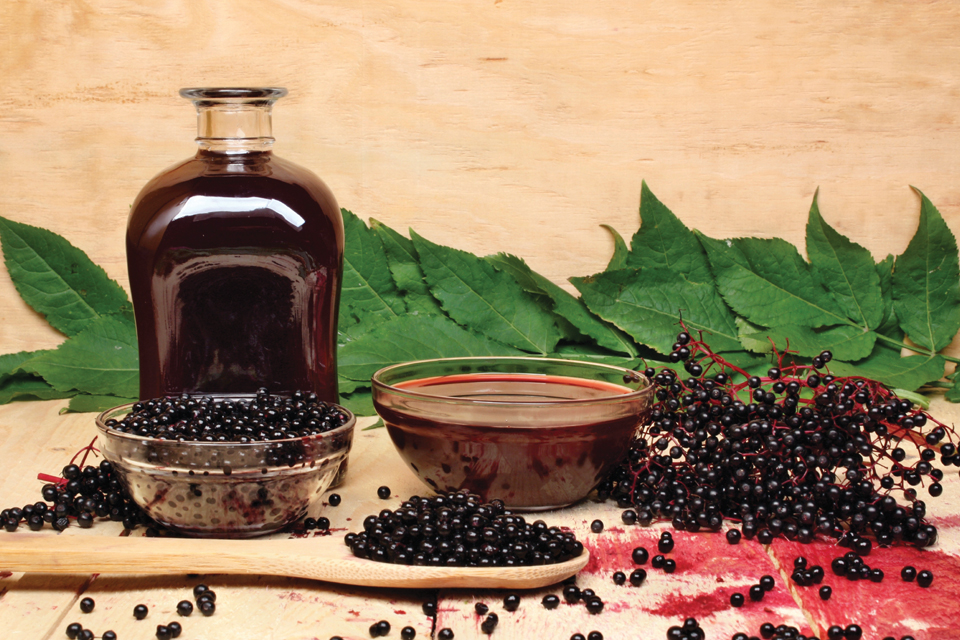What is Sambucus?

Walking down the aisles of a health food store, body aching and eyes heavy with fever—all those brightly colored bottles and boxes can be overwhelming. Will any of these pills actually do anything? What really works, and what is safe?
As a physician, I am always excited to help others navigate the supplement and vitamin aisles. At this time of year, as flu and other viruses peak, I am often asked if there are any “natural” things that can fight flu. For some people, this interest in a natural remedy is sparked by a desire to save money; for others, it is due to a desire to avoid, when possible, putting “foreign” substances into one’s system.
My response to this question is a resounding “Yes.” Often, Sambucus—“nature’s flu fighter”—may be just what the doctor ordered. Also known as Sambucol, Sambucus is made from the elderberry, a relative of the blackberry. Sambucus nigra, or elderberry, was referred to as having medicinal properties in writings from 5th century BC and was even mentioned in the works of Hippocrates and other early Greek healers Israeli virologist Dr. Madeline Mumcuoglu was inspired by these ancient medical texts and began elucidating the mechanism of elderberry extract beginning in the 1980s. By the mid-1990s, Mumcuoglu had proven that Sambucus is a powerful antiviral against flu. In 1995, laboratory studies were carried out, showing that Sambucus was also effective against human, swine, and avian influenza strains.
So, how does elderberry extract work? Sambucus is a potent antioxidant, but that is not its main mechanism of action. Flu viruses, as well as many other viruses, have spikes on the outside of their capsule called hemagglutinin spikes. They make the viruses look a bit like a porcupine. Sambucus has been shown to knock the hemagglutinin spikes off the virus, thus preventing the flu or other virus from attaching to their target of human cells. The infected individuals are also better able to attack the virus with their own immune system once these spikes are removed. This property makes Sambucus an ideal antiviral because it helps the immune system fight the virus. Sambucus was initially studied during the Israeli flu epidemic of 1992—1993, and the results were excellent. Within 24 hours, 20 percent of the patients who were taking Sambucus experienced dramatic improvements in symptoms of fever, muscle aches and pains, and coughing. By the second day, 73 percent were improved, and by day three, 90 percent were substantially better. In the untreated group, only 16 percent felt better after two days. The majority of the untreated group took almost a week to begin feeling better. In a more recent, randomized, placebo-controlled, double-blind study in which participants were given Sambucus or an inactive fruit syrup in the first 48 hours of symptoms, 93.3 percent of patients reported significant improvement within the first two days of taking the extract, and 90 percent of participants experienced complete resolution of symptoms after three days. By contrast, the control group in this study did not feel completely well for six days.
Using nature to harness our own immune response and helping our bodies fight threats such as flu effectively and safely without prescription medications is a particularly common goal among athletes and those working hard to keep their bodies and health in top condition. Since exposure to all those winter viruses (including flu) can't be avoided, Sambucus is a natural remedy that is worth having in the medicine cabinet. For many, this dark purple syrup has been a wonderful way to naturally avoid missing work or a workout.






